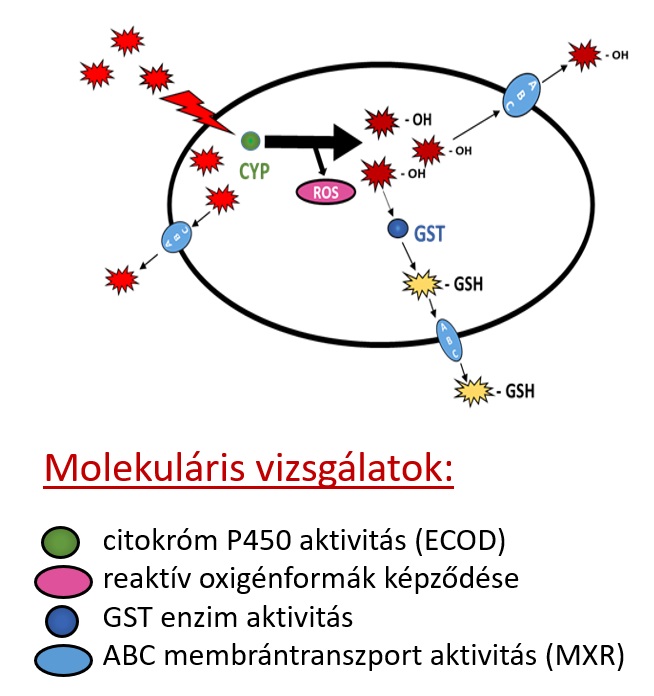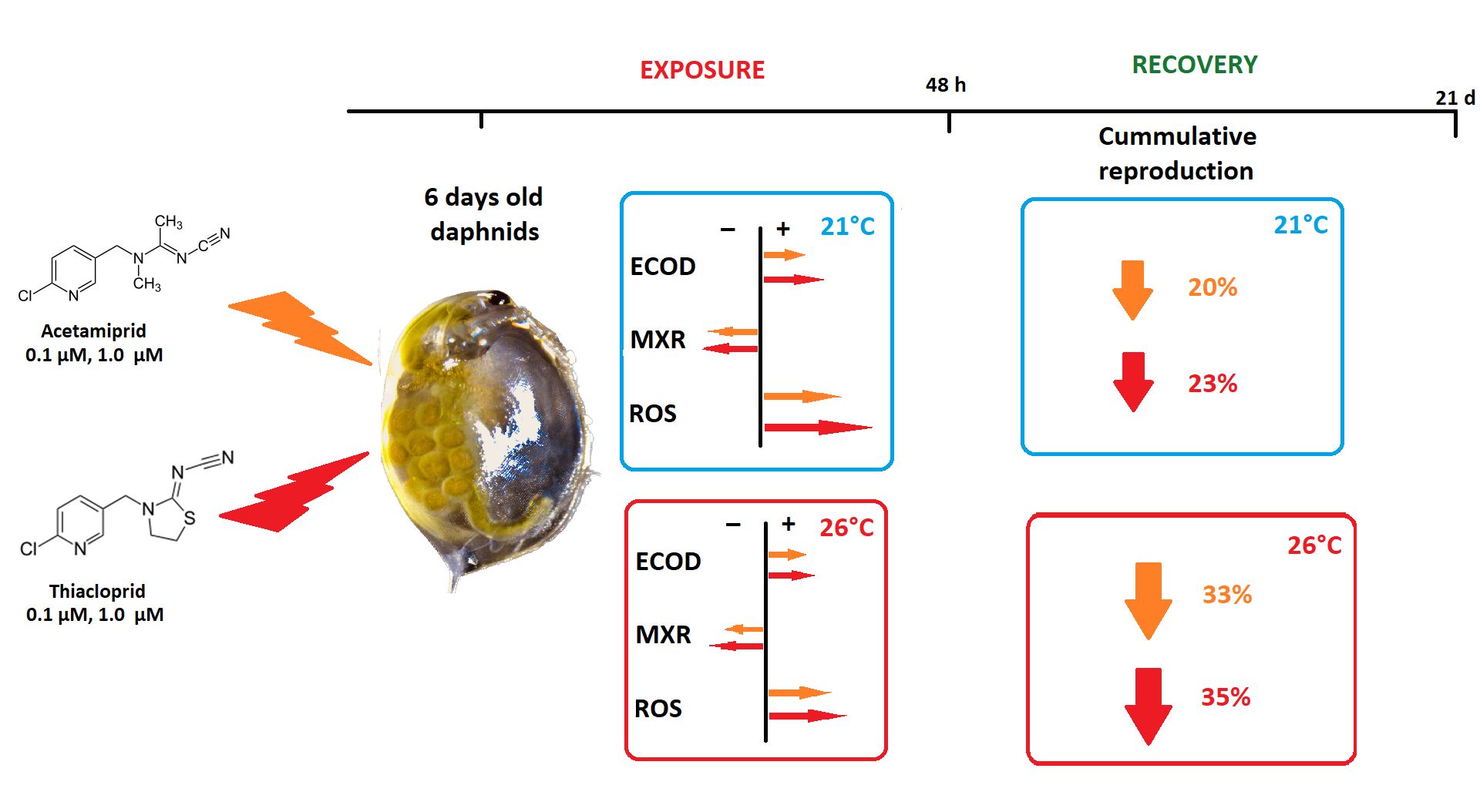HUN-REN BLRI researchers investigated the temperature-dependent toxicity of neonicotinoids, assessing molecular alterations elicited by acute exposure and long-term consequences in the reproduction of Daphnia magna
Researchers from the HUN-REN Balaton Limnological Research Institute (HUN-REN BLRI) investigated the effects of the neonicotinoid active ingredients acetamiprid and thiacloprid on the metabolism, membrane transport activity, oxidative stress status, and reproduction of the water flea (Daphnia magna) at temperatures of 21°C and 26°C. The results revealed that the higher mean temperature significantly amplified the effects of the tested substances on the metabolic and membrane transport processes of D. magna. Furthermore, neonicotinoid exposure had a more pronounced impact on the reproduction of the model organisms at 26°C incubation. The paper has been published in the scientific journal Comparative Biochemistry and Physiology Part C.
The emergence and increasing use of neonicotinoid-based insecticides since the 1990s have resulted in the occurrence of these substances and their breakdown products at more frequent and higher concentrations in natural surface waters. Like many hazardous substances, the assessment of neonicotinoid toxicity risk also raises the current question of the influence of climate change, accompanied by higher mean temperatures, for which there is limited data available. In light of these facts, researchers at HUN-REN BLRI investigated the effect of acute sublethal exposure to acetamiprid and thiacloprid – at concentrations of 0.1–1.0 µM – on the cytochrome P450 (CYP450) dependent biotransformation (ECOD activity) and detoxifying ABC membrane transport (MXR activity) systems, oxidative stress status (ROS) (see figure below), and the reproduction of the water flea (Daphnia magna) at standard 21°C and 26°C temperatures.

A 48-hour acute exposure to acetamiprid and thiacloprid induced significant oxidative stress in the water flea, characterised by the accumulation of reactive oxygen species (ROS). This was accompanied by increased ECOD activity, indicating active metabolism of the neonicotinoids. However, membrane transport activity was significantly inhibited (reduced MXR activity) (see figure below). The mean temperature of 26°C alone also caused significant oxidative stress in the organisms, thereby significantly enhancing the effects of neonicotinoids on metabolic and transport processes. Both neonicotinoid exposures had a more pronounced effect on the reproduction of D. magna at 26°C incubation, resulting in delayed first brood, decreased brood size, and significantly fewer offspring per female.

The research was carried out with the support of the Climate Change Multidisciplinary National Laboratory (NKFIH-471-3/2021) and KDP-2020-1018493 IF projects.
Publication:
András Ács, András Komáromy, W. Attila Kovács, István Fodor, Dávid Somogyvári, János Győri, Anna Farkas: Temperature related toxicity features of acute acetamiprid and thiacloprid exposure in Daphnia magna and implications on reproductive performance. Comparative Biochemistry and Physiology, Part C, 268 (2023) 109601. https://doi.org/10.1016/j.cbpc.2023.109601



